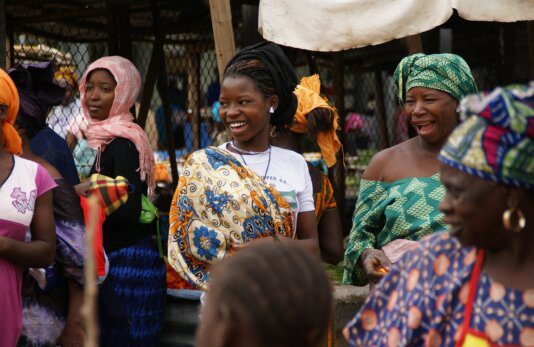THE WORLD CANNOT LET GAMBIA REPEAL ITS FGM BAN
By Bob Koigi APRIL 01, 2024

The recent move by The Gambian parliament to introduce a bill that seeks to overturn the law banning female genital mutilation (FGM) is sparking a global outcry and threatening to reverse the hard-earned legal gains in protecting women and girls.
The West African country outlawed female circumcision, commonly referred to as FGM, in 2015, with a punishment of up to three years imprisonment.
Up to three-quarters of women between 15 and 49 in Gambia have undergone the cut with devastating effects on their health and wellbeing. The practice that involves “the partial or total removal of the female external genitalia or other injury to the female genital organs for non-medical reasons,” according to UNICEF, can lead to bleeding, infections, childbirth complications, mental illness, infertility and, in severe cases, death.
It also violates women’s rights and gender equality. With the recent development in Gambia, where 42 out of 47 parliament members who participated in the voting gave the bill the green light to go into the committee stage and then to parliament for final reading and voting in three months, the country will be the first in the world to have reversed protection of women and girls from the harmful practice.
The proponents of the bill argue that it safeguards cultural values and upholds religious loyalty in the predominantly Muslim country.
However, the move threatens to have ripple effects, including a reversal of laws on child marriages. Other countries that have enacted legislation to ban the practice may follow suit, inspired by the Gambian example, putting the rights and health of women and girls at risk.
An estimated 230 million women and girls have undergone female genital cutting, an increase from 200 million eight years ago and despite numerous campaigns to condemn the practice, 2 million girls are still at risk of undergoing the cut by 2030. This situation is exacerbated by conflicts, diseases and climate change, with the problem being endemic in Africa, Asia and the Middle East.
The world must step up its resolve to protect the rights and health of women. Human rights organisations, civil society groups, and the media must work in harmony to amplify their dissent and be the voice of the voiceless girls in Gambia by calling out parliamentarians and the government and holding them accountable.
Regional bodies, the African Union and the international community must pile pressure on the Gambian government to respect the sanctity of women’s lives, rights and health and hold individual influential persons in the country responsible for promoting the harmful practice. The gains hard fought and won over decades must protected for the sake of fundamental human rights, health and the future of the girl child.